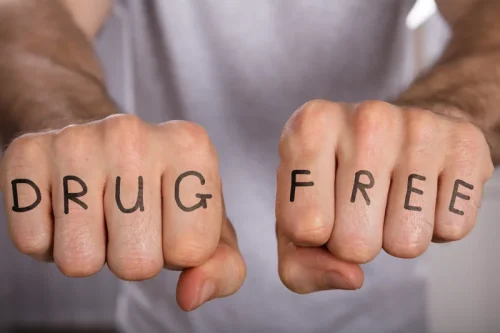
For another, it could mean cutting back or staying mostly drug-free. Being too rigid in your expectations can lead to disappointment and a sense of failure, even if your loved one finds stability in their life again. Your loved one may become defensive or angry and refuse to loving an addict discuss their drug use. Many people feel a sense of shame when confronted by their behavior and will try to deny they have a problem. Even when you don’t agree with the person, take the time to listen to what they have to say, without trying to argue or contradict them.
Staying Social When You Quit Drinking
- You can also talk to a doctor about medications that can help you cope with the symptoms of withdrawal.
- They may feel that addiction is a myth and they can quit any time they want or that they are an exception to the rule.
- Although some individuals achieve long-term recovery on their first attempt, for others, it may take multiple attempts over multiple years.
- Support groups or self-help groups can be part of in-patient programs or available for free use in the community.
This is not an excuse for people to vent their grievances about the addict’s behavior or make them feel bullied or ashamed. The problem is the disease of addiction, not the person in its grip. It’s not always easy to recognize if a loved one is abusing drugs. In teens, for example, drug abuse can often resemble normal adolescent moodiness.

Special Health Reports

If they check into a treatment center, visit or send them care packages if possible. Participate in family days or program sessions where you’re welcome. Offer your support and convey your willingness to be a part of their recovery process.
- Letting your loved one assume responsibility for their behavior and choices is an important step on their road to sobriety.
- If you’re interested in joining a support group, you might be able to find a local group in your community.
- For many addicts, daily (or multiple daily) attendance at meetings can be exactly what frees them from the addiction—it provides accountability and group support, which are so helpful to so many addicts of all types.
- Talking to others who are facing similar challenges can help you find comfort, reassurance, and new ways of coping.
- Supporters for people struggling with addiction often wish they could do more to help, and it can be tempting to try.
- While support is important, too much involvement can be unhealthy for the person with the addiction and you.
Setting Healthy Boundaries in Relationships
Some of our AAC facilities offer same-day admissions, depending on various factors, such as the person’s willingness to get help and the capacity of our treatment centers. At each of AAC’s treatment centers, a caring and compassionate addiction treatment team develops an individualized treatment plan for your loved one based on their needs. To learn more about the rehabilitation services we offer, visit our addiction treatment centers page. Family and friends tend to try to protect their loved one from those consequences, but that often has the unintended effect of enabling the substance abuse to get worse. People in early recovery typically need emotional and material support.
Educating Yourself on the Disease of Addiction
- The Money blog is your place for personal finance and consumer news.
- Withdrawal symptoms can be a difficult aspect of overcoming addiction for both substance and behavioral addictions.
- But dwelling on circumstances outside your control will only sap your energy and damage your mood.
- The fact is, people can be responsive to change if approached in an understanding and respectful way by concerned loved ones.
- Manipulation refers to when someone behaves in a specific way to attempt to control how another person thinks, feels, and behaves.
It results in a distorted value system that shifts toward supporting ongoing substance use. According to a national survey in 2019, 20.4 million Americans had experienced a substance use disorder over the past year. And data from the previous year showed that only about one tenth of individuals with an SUD received the treatment they needed. By Michelle PugleMichelle Pugle, MA is a freelance writer and reporter focusing on mental health and chronic conditions. As seen in Verywell, Healthline, Psych Central, Everyday Health, and Health.com, among others. While a person is free to say anything they want during an intervention, it’s best to be prepared with a plan to keep things positive and on track.
Best Medical Alert Systems of 2024 Chosen by Testers

Leave a Reply